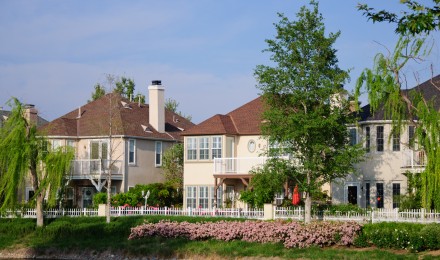America’s investment housing market, commonly attributed with flipping houses, has gotten so bad…or is it so good:
(a) Numerous small investors are finding ways to profit in it and/or
(b) Values are grossly inflated by now and it’s time to hit the brakes.
You could conclude either one of those scenarios if you woke up this Sunday morning and read the front page of the local newspaper, which pointed out “flipping houses” in Orlando is as commonplace as sun-and-theme-park-seeking tourists. A disclaimer: all markets are not like the hot one here. Also, keep in mind that while this example may be a textbook case of how to make money, it fails to look at the other side of the coin: risk, for example. So don’t make the mistake of thinking untold riches are as common as oranges in this onc-time citrus capital.
Taking that into account, a look at what is happening here may be useful to investors anywhere, Here’s some questions and answers:
Q: Who are these people who go around flipping houses? Who is benefitting?
A: Private individuals but also equity companies that are at times buying on their own but at other times purchasing from not only home owners but also private individuals doing flipping as well.
Q: Who says?
A: The Orlando Sentinel in a local analysis of commercial real estate data.
Q: How
well are these investors doing or how much profit are they making?
A: A review of 30 flips in the analysis of both homes and condos found buyers paying a median price of $41,178 and selling for $74,000. Profits of 50% are not unusual.
Q: What are buying terms, cash or credit?
A: Overwhelmingly cash.
Q: How much are flippers investing after their purchase?
A: Typically, $15 to $20,000 a house.
Q: What changes are flippers making to add to the sales appeal of the homes?
A: The most popular repairs are laminate floors, kitchen floors, granite and kitchen appliances. Some renovations include both outside and inside areas. Most makeovers are predominately cosmetic.
Q: What is a typical financial goal of flippers?
A: A $20,000 profit per house is often mentioned.
Q: How much money can individuals make?
A: The newspaper story quotes a real estate agent who bought and sold 52 houses last year and expects to flip up to 80 this year. His midpoint purchase price was $41,156, but he sold them (mostly to regular homeowners) for a median price of $131,000.
Q: Are equity groups running up prices.
A: Yes, no doubt.
Q: Will that continue?
A: Probably not. Surveys are finding that these groups are looking to slow down aggressive efforts later this year.
Q: Should I as a private investor be scared that prices will decline if these larger investors decide suddenly to sell?
A: No question that would deflate prices if the number of “for sale” signs proliferate.
Q: Will that happen?
A: Probably not.
Q: But if I am a private small investor, should I worry…or even cut back because this is another bubble?
A: That’s the best question of all. The best guess is that housing prices can’t continue to go up 20 percent as they have here, but how much can they slow down? Who knows? But something else to take from this survey is that it does not include any negatives or investors who found flipping flopped.
America’s investment housing market, commonly attributed with flipping houses, has gotten so bad…or is it so good:
(a) Numerous small investors are finding ways to profit in it and/or
(b) Values are grossly inflated by now and it’s time to hit the brakes.
You could conclude either one of those scenarios if you woke up this Sunday morning and read the front page of the local newspaper, which pointed out “flipping houses” in Orlando is as commonplace as sun-and-theme-park-seeking tourists. A disclaimer: all markets are not like the hot one here. Also, keep in mind that while this example may be a textbook case of how to make money, it fails to look at the other side of the coin: risk, for example. So don’t make the mistake of thinking untold riches are as common as oranges in this onc-time citrus capital.
Taking that into account, a look at what is happening here may be useful to investors anywhere, Here’s some questions and answers:
Q: Who are these people who go around flipping houses? Who is benefitting?
A: Private individuals but also equity companies that are at times buying on their own but at other times purchasing from not only home owners but also private individuals doing flipping as well.
Q: Who says?
A: The Orlando Sentinel in a local analysis of commercial real estate data.
Q: How
well are these investors doing or how much profit are they making?
A: A review of 30 flips in the analysis of both homes and condos found buyers paying a median price of $41,178 and selling for $74,000. Profits of 50% are not unusual.
Q: What are buying terms, cash or credit?
A: Overwhelmingly cash.
Q: How much are flippers investing after their purchase?
A: Typically, $15 to $20,000 a house.
Q: What changes are flippers making to add to the sales appeal of the homes?
A: The most popular repairs are laminate floors, kitchen floors, granite and kitchen appliances. Some renovations include both outside and inside areas. Most makeovers are predominately cosmetic.
Q: What is a typical financial goal of flippers?
A: A $20,000 profit per house is often mentioned.
Q: How much money can individuals make?
A: The newspaper story quotes a real estate agent who bought and sold 52 houses last year and expects to flip up to 80 this year. His midpoint purchase price was $41,156, but he sold them (mostly to regular homeowners) for a median price of $131,000.
Q: Are equity groups running up prices.
A: Yes, no doubt.
Q: Will that continue?
A: Probably not. Surveys are finding that these groups are looking to slow down aggressive efforts later this year.
Q: Should I as a private investor be scared that prices will decline if these larger investors decide suddenly to sell?
A: No question that would deflate prices if the number of “for sale” signs proliferate.
Q: Will that happen?
A: Probably not.
Q: But if I am a private small investor, should I worry…or even cut back because this is another bubble?
A: That’s the best question of all. The best guess is that housing prices can’t continue to go up 20 percent as they have here, but how much can they slow down? Who knows? But something else to take from this survey is that it does not include any negatives or investors who found flipping flopped.






